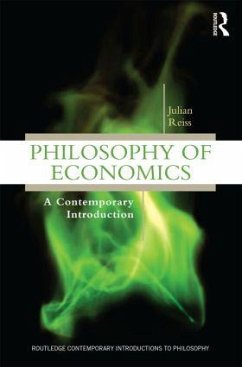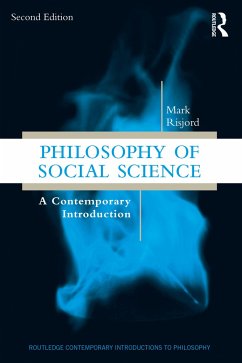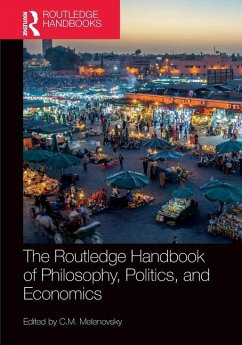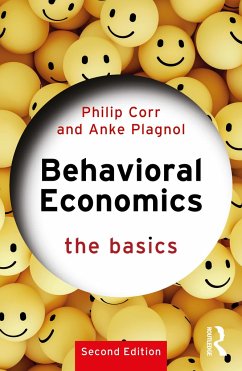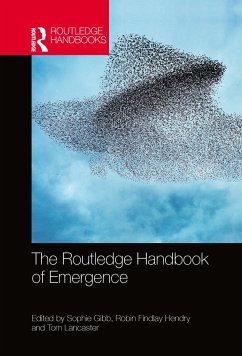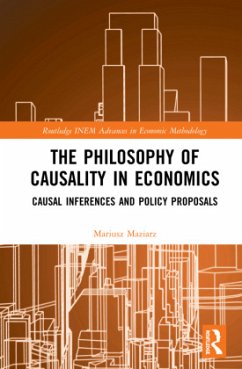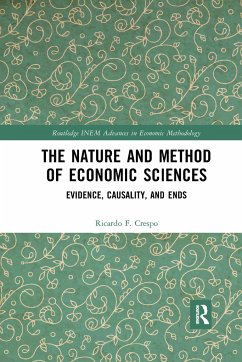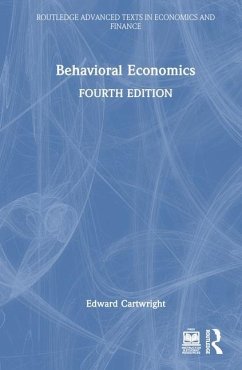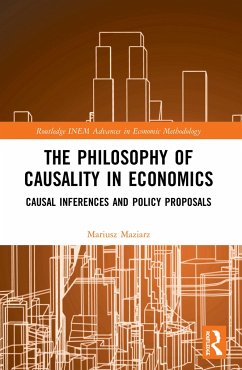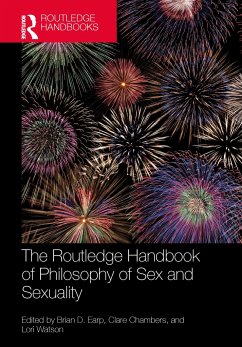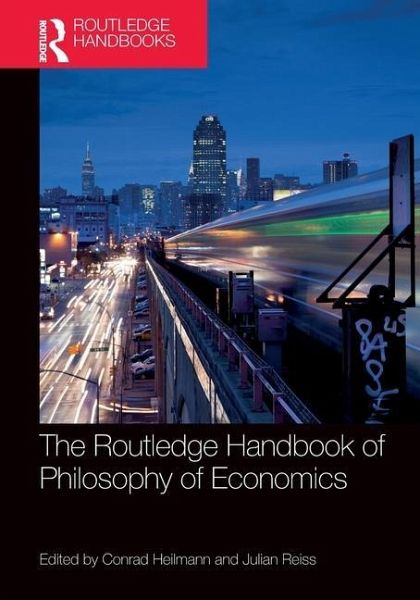
The Routledge Handbook of the Philosophy of Economics
Versandkostenfrei!
Versandfertig in 6-10 Tagen
49,99 €
inkl. MwSt.
Weitere Ausgaben:

PAYBACK Punkte
25 °P sammeln!
The most fundamental questions of economics are often philosophical in nature, and philosophers have, since the very beginning of Western philosophy, asked many questions that current observers would identify as economic. The Routledge Handbook of Philosophy of Economics is an outstanding reference source for the key topics, problems, and debates at the intersection of philosophical and economic inquiry. It captures this field of countless exciting interconnections, affinities, and opportunities for cross-fertilization.Comprising 35 chapters by a diverse team of contributors from all over the ...
The most fundamental questions of economics are often philosophical in nature, and philosophers have, since the very beginning of Western philosophy, asked many questions that current observers would identify as economic. The Routledge Handbook of Philosophy of Economics is an outstanding reference source for the key topics, problems, and debates at the intersection of philosophical and economic inquiry. It captures this field of countless exciting interconnections, affinities, and opportunities for cross-fertilization.
Comprising 35 chapters by a diverse team of contributors from all over the globe, the Handbook is divided into eight sections:
I. Rationality
II. Cooperation and Interaction
III. Methodology
IV. Values
V. Causality and Explanation
VI. Experimentation and Simulation
VII. Evidence
VIII. Policy
The volume is essential reading for students and researchers in economics and philosophy who are interested in exploring the interconnections between the two disciplines. It is also a valuable resource for those in related fields like political science, sociology, and the humanities.
Comprising 35 chapters by a diverse team of contributors from all over the globe, the Handbook is divided into eight sections:
I. Rationality
II. Cooperation and Interaction
III. Methodology
IV. Values
V. Causality and Explanation
VI. Experimentation and Simulation
VII. Evidence
VIII. Policy
The volume is essential reading for students and researchers in economics and philosophy who are interested in exploring the interconnections between the two disciplines. It is also a valuable resource for those in related fields like political science, sociology, and the humanities.





